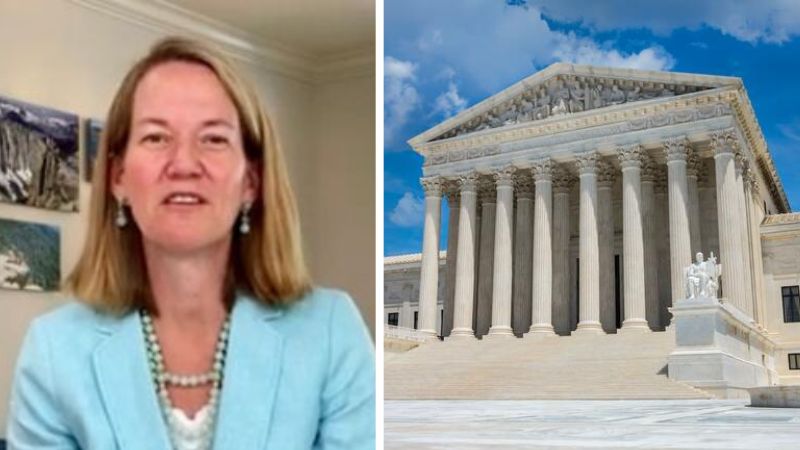In a divisive move that flouts recently affirmed religious freedoms, Democrat Arizona Attorney General Kris Mayes expressed her intent to prosecute businesses that deny services to any “protected class” individuals. This followed on the heels of a seminal Supreme Court decision, one that bolstered the defenses of religious liberty in the face of anti-discrimination laws. The Court ruled in favor of Lorie Smith, a Christian web designer based in Colorado who refuses to promote same-sex marriage through her work, a landmark verdict that has sparked a national debate over the balance of religious liberty and anti-discrimination laws.
Today, a woefully misguided majority of the United States Supreme Court has decided that businesses open to the public may, in certain circumstances, discriminate against LGBTQ+ Americans.
— AZ Attorney General Kris Mayes (@AZAGMayes) June 30, 2023
This ruling, decided by a 6-3 vote, deemed Smith’s refusal valid under the first amendment’s protection of free speech, fortifying individuals’ rights to oppose endorsing messages they fundamentally disagree with. This interpretation of the first amendment erupted in discordance from Mayes, who termed the ruling as “discriminatory” and “profoundly wrong.” Mayes echoed the sentiments of justice Sotomayor’s dissenting opinion, which rejected the precedent of permitting businesses to deny service based on constitutional protections.
Diverging from the Supreme Court’s judgment, Mayes encouraged those who suspect they’ve been subjected to discrimination by businesses because of their race, color, religion, or sex to come forward. She highlighted that under Arizona’s public accommodation law, such discriminatory practices are forbidden in public spaces. This adamant stand against what Mayes views as misinterpretation of constitutional rights has been seen as a form of defiance to the Supreme Court’s significant decision.
The pivotal case which instigated this whole debate, 303 Creative v. Elenis, revolved around Smith’s desire to extend her business to accommodate couples seeking wedding websites. Smith’s fear was that Colorado’s public accommodation laws, which are similar to Arizona’s, could force her to compromise her religious convictions by designing websites that celebrated marriages she did not agree with. This fearful anticipation led her to sue the state four years ago, citing the anti-discrimination law as violating her religious beliefs.
Justice Neil Gorsuch, who delivered the predominant opinion that approved Smith’s argument, stipulated that Colorado’s law sought to “compel an individual to create speech she does not believe.” This crucial verdict, however, was not met without dissent. Justice Sonia Sotomayor, joined by Justices Elena Kagan and Ketanji Brown Jackson in her dissent, admonished the Supreme Court for what she classified as a historic misstep, granting a constitutional right of business refusal to public-facing enterprises.
In this recent ruling, the Supreme Court seems to have drawn the battle lines within the current cultural discourse, revealing an eager combatant in Arizona Attorney General Kris Mayes. Her active defiance against the court’s decision reinstates her commitment toward an unbiased implementation of Arizona’s public accommodation law, even as it defies a high court’s verdict. However, it stresses upon the very essence of the nation’s ongoing struggle – the challenge between preserving religious liberty whilst precluding discrimination. This delicate equilibrium will undoubtedly influence several subsequent lawsuits and continue to reshape the discourse around anti-discrimination laws and religious freedom.
This legal tumult has confirmed that the balancing act between safeguarding religious beliefs and clamping down on discrimination remains far from settled. What is certain, though, is that this uncompromising ruling has lit a fire under a longstanding debate, stoking the embers of dissent amongst those vocally apprehensive of its implications. It’s a clash of constitutional interpretation, a grapple with the concept of liberty cast against the fundamental principles of equality and non-discrimination, and it’s unlikely to be extinguished anytime soon. Amidst the smoke and flare of polarizing opinions, the avowal from AG Kris Mayes of Arizona to confront those defying the state’s public accommodation laws outlines the unyielding battle lines in this unfolding human rights narrative.



